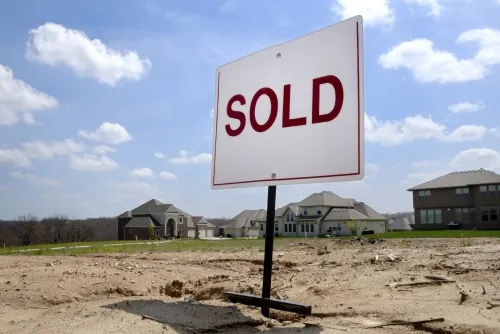 by Jennifer Jones
by Jennifer Jones
Buying land is an exciting prospect for future homeowners looking to build their personal dream house.

However, it is important not to get lost in all the excitement as buying land is very different from purchasing a ready-to-go home. Things that are taken for granted when a home is purchased- such as utilities- can be dealbreakers when looking for the perfect bit of land to call your own.

The first thing to remember when purchasing land is to ask every question and voice every confusion or doubt. If you wait to clarify a misunderstanding, it may be took late and you may have purchased land that will not fit your need. Keep a running list of all questions and answers, including details about the following:
Zoning – Zoning laws are the first hurdle to cross when trying to purchase land for a home. Some land that is for sale is specifically set aside for commercial building rather than residential. If the bit of land you adore is residential, ask about the long-term land use plan. Is a highway zoned to come right past your front door in a few years time? What about retail or entertainment districts? While these businesses may be appealing to some homeowners, others may consider such construction a blot to their dream home.
Boundaries and Access – While the zoning may all be in order, that lot may or may not be planned for subdivisions. If so, ask to see any restrictions planned for that subdivision. Current plant life may soon be removed for neighboring yards and homeowner associations may have rules that will limit what you seek in a dream home. Additionally, seek out information on the accessibility of a plot. Private roads are often mistaken for public thoroughfares and can drastically affect how your home is accessed by yourself as well as by various services such as repairmen.
Elevation – Do not forget to take a look at the plot itself. While the location may be ideal, the soil may be unable to support that garden you hope to plant or it may be part of a floodplain or erosion problem. Some plots will require building into a hillside which will affect your budget and home design.
Utilities – Utilities are vital to a functioning household. Are water and communications systems set up in nearby areas or will it be costly to bring them out to your home? Will you have connection to the sewer system or is a septic system required? Ask for professional input and cost quotes well in advance to ensure the lot is both functional and affordable.
Sights, Sounds, Smells – Once everything has been thoroughly questioned and examined, it is important to make sure you actually like the lot of land. Take the time to walk the boundaries, slowly taking in everything around you. Are there any views, sounds, or smells that may be regular inhabitants of the land that you will later be unable to live with? No homeowner should be forced to deal with an offense to the senses when selecting one’s own plot.
Certainly it is sometimes necessary to compromise as the perfect lot simply may not exist in an area. It is important to determine what components of a lot are dealbreakers and what are flexible. Is it more important that you live in a specific school district if it means you sacrifice having that walk-out basement? Such compromises can only be determined by you. Take your time seeking information and advice before settling on any parcel of land. After all, your dream house can only be built if it’s sitting on the right bit of land.
Here are some related articles:
Save this article to:
back to top